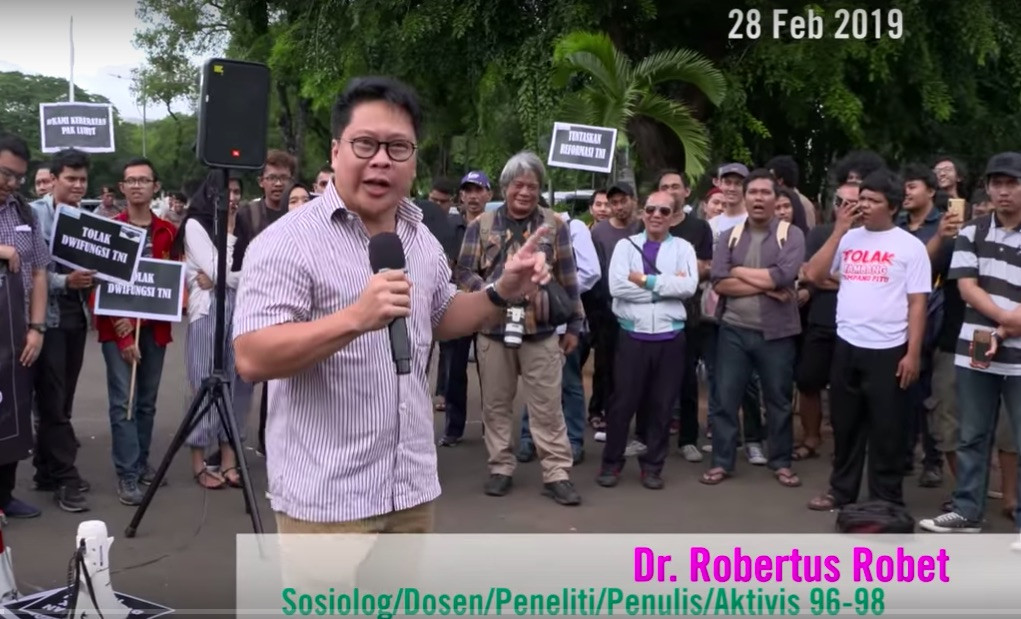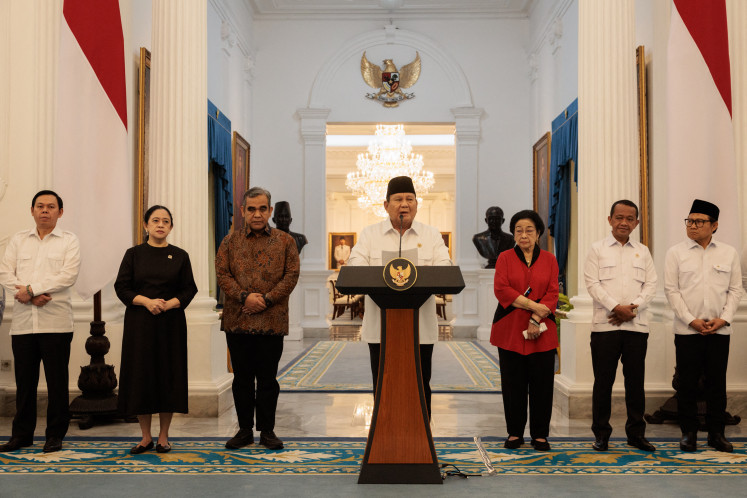Popular Reads
Top Results
Can't find what you're looking for?
View all search resultsPopular Reads
Top Results
Can't find what you're looking for?
View all search resultsSame old song
The more attempts there are to silence critics, the less credible the debate is over the amendment.
Change text size
Gift Premium Articles
to Anyone
P
erhaps university lecturer and prodemocracy activist Robertus Robet was unlucky for singing a song deemed to have insulted the Indonesian Military (TNI). The police arrested him early Thursday and charged him under Article 207 of the Criminal Code on defaming those in power or legal institutions. More than 20 years ago, students chanted the same old song to criticize the military’s omnipresence in government and civilian affairs but went unpunished.
The arrest, therefore, comes as a surprise as it happened as Indonesia embraces democracy, with freedom of expression warranted. The Robertus case has only exacerbated the penchant for criminalizing people exercising their freedom of expression under the pretext of defamation, hate speech and other vague offenses, such as an “indecent act” that our century-old criminal justice system has ironically maintained. The articles, known for their multi-interpretations, were created by the colonial ruler to silence those aspiring to independence.
Police eventually released Robertus after questioning him. However, the way law enforcement immediately responded to a defamation report filed against him sends the wrong message about the risk people may face for being critical in this “democratic” era. A few years ago, a housewife was jailed because of a complaint about a hospital’s service she made to her friend by email that later went viral, and it was only in January that the Supreme Court maintained a female teacher’s jail sentence for defamation just because she posted a recording of a reportedly lewd phone call between the school’s principal and herself as evidence of alleged sexual harassment.
The list is likely to get longer as it may target not only government critics like Robertus but also ordinary people venting their disappointment in a manner that others cannot accept. Aside from the outdated Criminal Code, the Electronic Information and Transactions (ITE) Law is another legitimate tool to ensnare anyone whose online postings are considered offensive.
In Robertus’ case, what matters is not only his — and our — endangered freedom of speech but also the substance of his criticism: the government’s plan to amend the 2004 TNI Law, which will reportedly justify the recruitment of military officers for civilian jobs outside the 10 government and state institutions accessible to them according to the law. Robertus and others who support democracy, including some retired military generals, have warned that the amendment plan will pave the way for the return of the military’s dwifungsi (dual function) during the Soeharto era.
As part of public discourse, criticism is what we need, especially in relation to crucial issues such as the revision of the TNI Law, which was enacted to build a professional military organization. Robertus reminded the government and House of Representatives of the potential revival of dwifungsi. Such apprehension is valid, as there has been no clear explanation on the part of the government about the reasons behind the amendment, except that it aims to settle the issue of hundreds of idle military officers.
The more attempts there are to silence critics, the less credible the debate is over the amendment.










